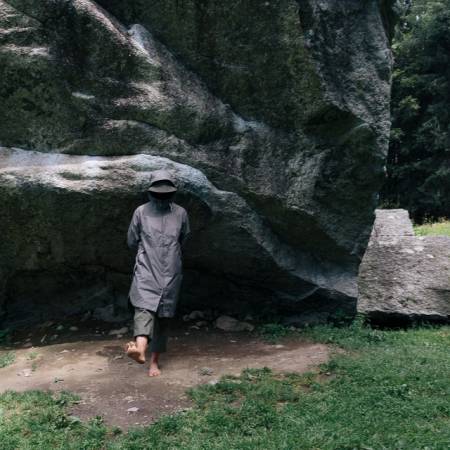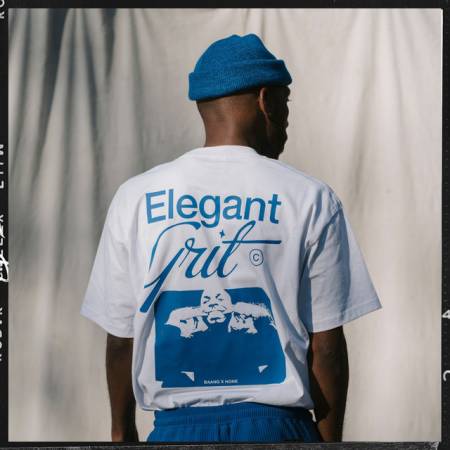The ever-lasting consolidation of technology has enabled a shift toward autonomy in the music business. Just as micro-breweries confronted the industrial brewing sector, artist-run record labels have taken electronic music by storm. Concerning electronic production, we're living in a golden age of artistic independence.
Riding this wave of artistic autonomy is Future Archive Recordings, which is more than just an artist-run label. It is a collective, which pools know-how and resources to ensure development and growth of its members
Future Archive's label co-manager Chris Richards has been in the music business for 10+ years. He's done it all: label management, artist management, event management, booking, producing (as CNJR), etc... He currently sits as the label manager for Emancipator's Loci Recordings, artist manager at his own firm Achillea Music, as well as co-owner and co-manager at Future Archive. He's among the old-school firepower behind the Future Archive movement, which has turned obstacle into opportunity during the trying era of streaming.
Get to know more about Future Archive in latest tracks playlist below while you give our interview with Chris a read.
Stay up to date.
New music and exclusive updates in your inbox weekly.
Hey Chris, great to have you on for an interview. You’re a pretty busy guy who manages Emancipator’s Loci Recordings, co-managing an artist collective called Future Archive, and managing artists. What gives, man? Where do you get the steam to do all of this?
Honestly, on some days, I'm not sure. All I can say is that I work with a group of artists that I know personally, have worked with for many years to a decade, and really caring about the music and the trajectory of these profiles provides all the steam needed. I believe in the music, the impact it can and will have on listeners, the people making the music, and the importance to help get it out to as many people as possible.
You have a recent development: building an artist collective label called Future Archive. I love this name. Tell us more about it: how did it come in to being? How did you get involved?
Future Archive Recordings came to be because a growing number of artists that I work with were frustrated with the process of shopping albums to record labels, as well as many of the results they were experiencing when successfully releasing on large labels. A couple acts come to mind who were strung along for a year or more in conversations with large labels and then the label suddenly passed, delaying there release and lowering general momentum. A few more come to mind were it seemed the label was providing nothing other than hiring a publicist and having a good distributor, which has become arguable in regards to can it be done internally with a self release. By no means am I saying that the traditional label platform doesn't work for a lot of artists out there, but a growing number seemed to be expressing a desire for a different option. Future Archive was first a conversation about what a different option could look like. What would it look like to have an umbrella brand that had the same infrastructure as a strong boutique label, meaning solid distributor with a label rep, access to various sizes of publicists and radio campaign options, a grassroots marketing strategy that cross pollinates artist fanbases, etc. What would it look like if this umbrella company bypassed some of the difficulties of interfacing with a traditional label? For example, leaving the creativity in the hands of the artists, having quicker turnaround times with getting albums onto the schedule, having transparent marketing plans that the artist can be involved in designing and budgeting, having various customizable options for deal structures based on how much the artist wants to be involved. Future Archive is artist founded, artist run, and artist focused. We like to view the model as being somewhere in between self releasing and releasing with a traditional label. We partner up with artists on their release, and suddenly there is a team behind the releases.
As far as getting involved, I will just say I have been involved from the first conversation and the desire to move that conversation forward. Everyone involved has imagined similar things prior to coming together, but the founding artists, Little People, Arms and Sleepers, Sun Glitters, and CNJR (Myself) put the work in from the beginning to actualize the idea.
This collective has a mission to bring artists together, foster collaboration, and provide a landscape that aims to change the traditional model of how labels are run. Let’s start with collaboration: what actions does Future Archive take to grow artists?
Functioning as a record label is one of the primary tasks at Future Archive, although we are also producing events, working on video game development, and exploring other tech avenues. Being a label, we of course are involved in what you may imagine, seeking out and hiring publicists and marketing partners for releases, partnering with our kick ass distributor (which is IDOL, by the way) to interface with DSP's and playlist pitching, and using basic social media and email marketing to reach fans. We are consistently involved in widening our reach with press, and with playlisting on Spotify, Apple Music, and similar. But, we are also involved in the cross pollination of fan bases. We are heavily involved in assisting in touring for our artists, and are consistently pairing acts together on the road. For example, Fall 2018's Blockhead, Arms and Sleepers, + Yppah USA tour, which also appeared in Europe in fall 2019. Little People, Marley Carroll, and Natasha Kmeto toured together in spring 2019 as well. Blockhead is touring with il:lo in 2020. Just a couple examples, but it's an active goal to make sure that Little People fans are checking out Blockhead, and Blockhead fans are checking out Yppah, and Yppah fans are checking out Arms and Sleepers, etc etc. Touring helps bridge this, but also collaboration in the studio. Blockhead, Arms and Sleepers, and Yppah released a collaborative remix EP called Hermit Kingdom. Little People did a remix for a VOLO single we released. Sun Glitters and Yppah did remixes for a CNJR single we released. We are also producing events. We co-launched the mobile event series called Balloon Pop in 2019, which is a large soft ticket party that happens several times a year. The first event took place in SF, Denver, and Austin, and featured Wax Tailor, Blockhead, Yppah, Little People, Arms and Sleepers, Natasha Kmeto, and CNJR. The next installment is in early 2020 featuring a Loci Records showcase, with sets by Emancipator, Frameworks, Tor, Thoma (who we also have a release with), and a 2nd stage featuring Blackbird Blackbird, Plantrae (who released a single with us), and il:lo (whose new EP release through us is coming up fast). We also coordinated a label showcase in Berlin recently, featuring 9 artists from Future Archive. We are constantly behind the scenes talking about how to cross pollinate the fans, we have some more exciting ideas that are in process I can't fully mention yet, but all I can say is that creativity and figuring out unique approaches to building a team of artists and a brand that artists are excited to be a part of is important to us.
And ‘The Traditional Label model’… you’re an experience figure in the music business. What problems in the industry is Future Archive, as a label, aiming to solve? And how do they solve them?
I wouldn't say we are aiming to solve anything. I'd say we are aiming to adjust the model to fit our needs and the needs of the kind of artists we work with.
I don't think it's any mystery that every type of label deal doesn't work for every kind of artist. And every kind of artist management deal doesn't work for every kind of artist. Allowing for flexibility, for customization, is what we are aiming for. Taking a closer look at what each artist really needs to get a push forward and seeing how we can assist in those resources becoming available.
The name of the label is very creative. It hosts an eclectic flavor of producers who are very technical in their productions. How would you describe the ‘sonic brand’ of Future Archive?
I think the main unifying theme across our artists is simply a desire to be creative without trying to fit into a box. If you listen to our catalog, of course you'll notice that its mostly electronic music, that a large percentage of it is instrumental, that much of it may be described as downtempo, but these are not aesthetic choices as much as they are just simply what our artists were inspired to put out at the time that these releases came out. There is variance and oddities for sure, with Sun Glitters pushing a new side project called CLD.RĀN, which is an abstract exploration in glitch, and my project CNJR exploring sci-fi and dark synth music, with the unreleased upcoming music being even darker and more industrial leaning, or drab being an artist coming out of the black metal and hardcore scene releasing extremely compelling and beautiful dark ambient. Little People's latest release sees a slight departure from downtempo into a more indie leaning idm pop electronic. Yppah's upcoming release draws from a lot of shoegaze influence.
There is variety and creativity within the brand, but we feel that it is cohesive. I guess simply put, we are releasing music that we believe fits into 'if you are a fan of this, then you should also like this'. Down the road we are hoping to branch out a bit more, and though I cannot mention names, I can say there is more vocal driven, trip-hop, and indie leaning ideas coming soon. If I had to describe the brand, I'd say, welcome to the future, archived now.
In the process of building this collective, what have been some notable memories that you can look back on and smile about?
The lack of sleep. The numerous conference calls with four different countries calling in. The comradery. The sudden availability to have a team of artists available to listen to demos and give mix feedback. There is a lot of really positive aspects to the journey thus far, and of course the flip side, being stress and processing and making mutual decisions. No one is 'in charge', which has provided for difficult times, but also really creative and unique processes to get things done and to bring ideas to the table.
You yourself have seen massive change in the music industry in your career. What’s been the most striking in the past decade to five years?
I suppose the rise of streaming DSP's. Spotify and Apple Music causing such an impact on how you reach fans. I was the founder of Autonomous Music about 12 years ago, a booking agency and management firm in the USA. We were involved in developing a lot of artists, like Ott, Polish Ambassador, Emancipator, Papadosio, Quantic, Blockhead, and about 60 more acts. With my business partner at the time, Keith LeWinter, who is now over at Red Light Management, we spent a lot of time developing direct to fan communication for our clients. Building social media platforms and bandcamp stores, to drive direct sales via keeping in touch which who is interested. Artists like Emancipator and Ott both had a massive growth trajectory from focusing on Bandcamp and using Facebook and Email Lists. Now, with sales being in the backseat, and really attempting to reach playlisters and maximize success on Spotify, a lot of those tactics have slipped away. Many artists I know have seen very large declines in direct to fan sales using Bandcamp or similar platforms. It has been a huge adjustment and refocus to develop a different type of strategy to reach fans and maintain interest. Another would be the decline of Facebook. Facebook ads used to be a great way to disperse information, but again, we've seen a big decline in the user interaction with ads and facebook in general. I also came from a booking agent background, and we could mention the decline of boutique options for agencies. Artists are having a harder time than ever getting signed by agencies because the number of agencies is simpler going down. Paradigm and UTA, which are great firms that have agents i respect, have bought up many of the smaller companies, or have pulled agents over from smaller companies. So a developing artist trying to get off the ground just has less options out there.
What are the future plans for future archive?
Creative output, output creatively.
Any shout outs you’d like to give?
The whole Future Archive team and all the artists, IDOL distribution, Loci Records, Red Light Management, Brent Tactic at Madison House, Ninja at Ninja Booking, James Servin at Rogue Agency, Stereofox, our partners at Phantom Limb, the team at Pelagic Records, i mean, i could probably just go on forever here.
Check out all the latest releases from Future Archive Recordings here.







